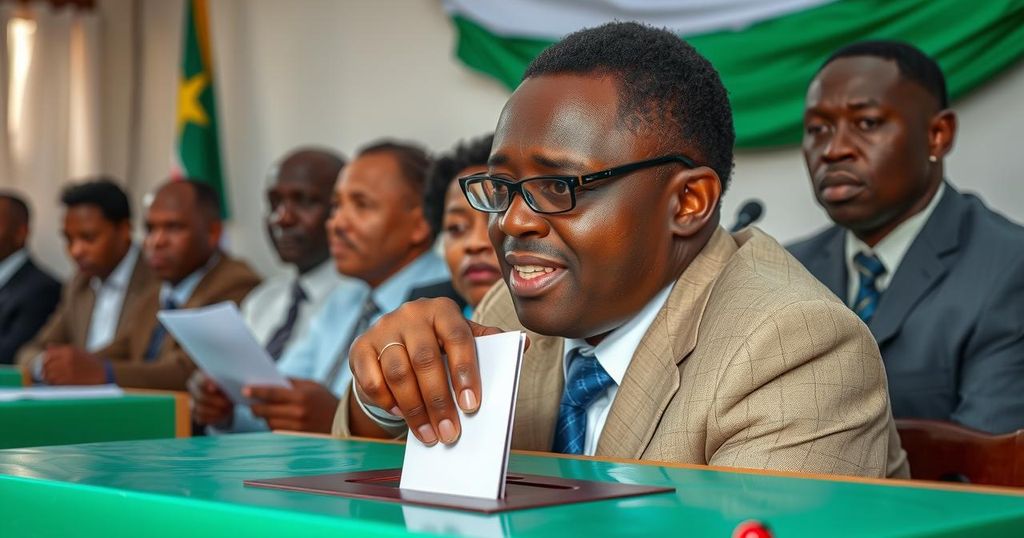Comoros Conducts Controversial Parliamentary Election Amid Opposition Boycott

Comoros held a parliamentary election that faced a boycott from some opposition parties. Critics accused President Azali Assoumani of authoritarianism and questioned the electoral integrity. Approximately 330,000 voters were registered, but low turnout was expected due to discontent with the democratic process.
On Sunday, a parliamentary election was conducted in Comoros, although some opposition factions opted to boycott the process. These leaders have accused President Azali Assoumani and his ruling coalition of increasingly authoritarian tendencies and expressed skepticism regarding the electoral integrity. The election will determine the composition of the legislature, with results anticipated in the coming week from the national electoral commission.
Approximately 330,000 citizens from a population of 850,000 are registered to participate in the voting. However, opposition parties predict a low voter turnout due to pervasive dissatisfaction with the democratic practices. In the last election held in 2020, Assoumani’s Convention for the Renewal of the Comoros party secured 20 of the 24 contested seats.
President Assoumani cast his vote in Mitsoudjé, on the island of Grande Comore. Opposition movements labeled the previous election a “masquerade,” citing its lack of fairness. Assoumani, who won another five-year presidential term last year amid allegations of electoral fraud, has a history marked by political turbulence and recalls of military coups post-independence from France in 1975.
Former President Ahmed Abdallah Sambi’s Juwa Party is among those boycotting the election, having also declined participation in 2020. Assoumani’s governance has faced criticism for political suppression and non-competitive elections, exacerbated by a recent constitutional amendment that allowed him to bypass term limits.
Comoros is an Indian Ocean archipelago situated off the eastern coast of Africa, in proximity to Madagascar. Historically, the nation has experienced extensive political instability, characterized by numerous military coups since achieving independence from France in 1975. Azali Assoumani, a former military officer, first came to power in 1999 through a successful coup. After stepping down in 2006, he returned to the presidency in 2016 and has since maintained power through three consecutive elections, which critics assert have lacked competition and integrity. His administration has faced escalating domestic discontent, particularly from opposition parties.
In summary, the parliamentary election in Comoros was met with significant opposition boycotting, primarily due to concerns regarding President Assoumani’s governance and allegations of undemocratic election practices. With a low anticipated voter turnout and previous elections marred by controversy, the legitimacy of this electoral process remains in question while the nation continues to grapple with its political difficulties.
Original Source: apnews.com







